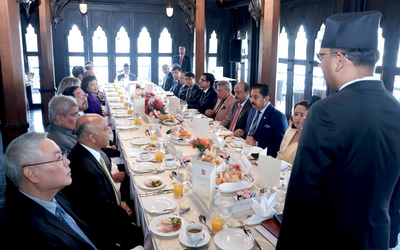More on Economy




THE biggest global economic news lately has been that economic growth in both China and India has appeared to have slowed down.
GDP figures for China show that its economy grew by only 8.1% in the first quarter of 2012, less than the 8.3% that its government predicted and less than the 8.9% of the last quarter.
More worryingly, industrial production grew by only 9.3% from a year earlier in April 2012, down from a 12% increase in March. China’s import growth and the HSBC Flash Purchasing Managers Index also fell.
India, too, has had a truly wretched quarter. Its economic growth slumped to a nine-year low with its first quarter GDP coming in at 5.3%, much less than the 6.9% earlier predicted. This was partially caused by weakness in its manufacturing sector, which grew by just 2.5% over the entire year. According to the Washington Post, manufacturing now makes up only 16% of India’s economy, compared to 13% four decades ago.
These figures are not only a blow to Sino-Indian pride as ostensibly the strongest pillars of the “BRIC” (Brazil, Russia, India and China) – that iconic grouping which is supposed to be driving global economic growth in the future – it also spells potential trouble for the world economy given the fact that the American economy is still underperforming and the continued turmoil in the Eurozone.
What could possibly have caused the downturn for these two rising economies? One hates to say it, but the causes are most likely political and administrative.
The Chinese Communist Party (CCP), as we know, derives most of its legitimacy from its economic performance, which is fine by the party rather than to cede further political freedoms and civil liberties. The recent controversies over Liu Xiaobao, Ai Weiwei and Chen Guangcheng show how little progress the People’s Republic (PRC) has made since the Tiananmen Square Incident.
Further, Apple’s troubles in China over its iPad tablet show that the latter’s commitment to economic freedoms are also qualified at best. At the same time, the PRC is failing to close the widening gap between its various regions, with legacy regulations such as the notorious hukou system (that effectively restricts the freedom of movement of its citizens) remaining largely in place.
It doesn’t help that China is now undergoing its worst political crisis in decades, thanks to the ousting of the erstwhile princeling Bo Xilai. The grave danger now is that the CCP will resort to whipping up China’s ever-present xenophobia and nationalism to distract attention from its worsening economy. Perhaps it’s no accident that Bo’s defenestration took place roughly around the same time that China ratcheted up its dispute with the Philippines over the Scarborough Shoal.
Whilst India is ostensibly a parliamentary democracy, its economic malaise also arguably stems from the lack of reform, factional skulduggery and policy paralysis. Many recently-proposed and long-delayed reforms, such as the liberalisation of its retail sector, were strangled in the cradle thanks to political opposition.
It’s clear that India is finding it difficult moving beyond the protectionism and over-regulation enshrined during the Licence Raj. As the chairman of Oxus Investments, Surjit S. Bahlla recently wrote, India’s current economic malaise can be attributed to the Congress Party-led United Progressive Alliance government’s retention of socialist policies “that would embarrass even a Venezuelan Hugo Chavez”.
At the same time, Prime Minister Manmohan Singh’s administration, once-lionised for its technocratic credentials, has been tarnished by a spate of corruption scandals, including over contracting for the Commonwealth Games, telecommunications licensing and the sale of coal fields. The perceived lack of probity, inefficiency and dynastism rife in Indian politics has done nothing to boost public confidence (how else do you explain the groundswell of support for the quixotic Anna Hazare movement?) and the brain drain continuing to afflict the union.
Make no mistake, therefore, it is the lack of reform and liberalisation, which in turn is caused by the entrenchment of vested interests determined to maintain their influence via the clearly outdated political economies of the past that is stymieing the bright economic promises of China and India. As much as we would like to believe that economics and business can be decoupled from politics, the reality is that these are all intertwined.
Economic development must go hand in hand with political transformation. Without this, countries are doomed to widening inequality, mediocrity and stagnation.
Of course, it would be unwise to write off China and India, what with their huge populations and markets. At the same time, however, it’s hard to see how they will not end up stuck in an endless cycle of boom and bust without ever really improving the lives of their peoples without substantive change in the ways they are governed and how their leaders are held accountable.
Closer to home, the message to Malaysia is clear. If economic powerhouses like China and India have proven so vulnerable to the lack of reform, what more a smaller country like ours that is so dependent on the vagaries of the global economy?
http://www.thesundaily.my/news/401396
Keith Leong is a fellow at the Institute for Democracy and Economic Affairs (IDEAS). Comments: letters@thesundaily.com



